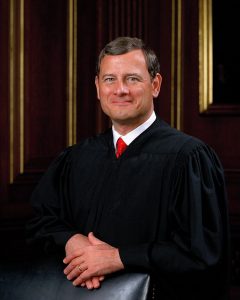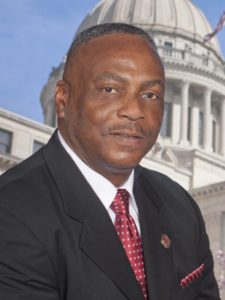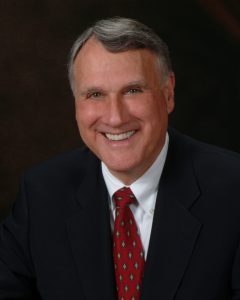September 18, 2018 •
South Dakota Holds Special Session
The South Dakota Legislature held a one-day special session on September 12 addressing online sales tax measures. The initial law to collect sales tax from online retailers was passed in 2016, but it was challenged and taken all the way […]
 The South Dakota Legislature held a one-day special session on September 12 addressing online sales tax measures.
The South Dakota Legislature held a one-day special session on September 12 addressing online sales tax measures.
The initial law to collect sales tax from online retailers was passed in 2016, but it was challenged and taken all the way to the U.S. Supreme Court.
This special session was to set an effective date for the law to go into effect.
September 18, 2018 •
Missouri Special Session Adjourns
The Missouri Legislature adjourned on September 14 after finalizing two bills that were vetoed by Gov. Mike Parson in July. The first bill expands the definition of treatment courts as a substitute for imprisonment, and the second creates an online-based […]
 The Missouri Legislature adjourned on September 14 after finalizing two bills that were vetoed by Gov. Mike Parson in July.
The Missouri Legislature adjourned on September 14 after finalizing two bills that were vetoed by Gov. Mike Parson in July.
The first bill expands the definition of treatment courts as a substitute for imprisonment, and the second creates an online-based STEM program for public schools.
The Legislature will convene for the 2019 session on January 9.
September 17, 2018 •
Missouri Ethics Reform Ballot Initiative in Jeopardy
A redistricting proposal and ethics reform ballot initiative titled Clean Missouri expected to be on November’s ballot is now at risk of being withdrawn. Cole County Circuit Judge Daniel Green ordered Sec. of State Jay Ashcroft to rescind the certification […]
 A redistricting proposal and ethics reform ballot initiative titled Clean Missouri expected to be on November’s ballot is now at risk of being withdrawn.
A redistricting proposal and ethics reform ballot initiative titled Clean Missouri expected to be on November’s ballot is now at risk of being withdrawn.
Cole County Circuit Judge Daniel Green ordered Sec. of State Jay Ashcroft to rescind the certification of the proposal because it violates the Missouri Constitution because a proposal can only cover one subject and can only amend one article of the Constitution, and the current ballot initiative breaks both of these rules.
Clean Missouri included a redistricting proposal and also proposed lowering campaign donation limits, abolishing a majority of gifts to lobbyists, and setting a two-year revolving door provision for legislators and their staffers before becoming lobbyists.
September 17, 2018 •
Chief Justice Roberts Stays FEC Campaign Finance Disclosure Regulation
On September 15th, Chief Justice of the United States John G. Roberts, Jr. issued an order staying a lower federal district court’s order invalidating a Federal Election Commission (FEC) campaign finance disclosure regulation. Robert’s stay was decided on Saturday after […]
 On September 15th, Chief Justice of the United States John G. Roberts, Jr. issued an order staying a lower federal district court’s order invalidating a Federal Election Commission (FEC) campaign finance disclosure regulation. Robert’s stay was decided on Saturday after the U.S. Court of Appeals for the District of Columbia Circuit denied an emergency motion for the stay made earlier the same day.
On September 15th, Chief Justice of the United States John G. Roberts, Jr. issued an order staying a lower federal district court’s order invalidating a Federal Election Commission (FEC) campaign finance disclosure regulation. Robert’s stay was decided on Saturday after the U.S. Court of Appeals for the District of Columbia Circuit denied an emergency motion for the stay made earlier the same day.
On August 3, a federal district court had ruled a campaign finance disclosure regulation, followed for decades by the FEC, failed to uphold disclosure requirements required by a federal statute. Chief Judge Beryl A. Howell of the United States District Court for The District of Columbia issued an order, in CREW v. FEC, vacating 11 C.F.R. §109.10(e)(1)(vi), but stayed the vacatur for 45 days to give time for the FEC to issue interim regulations comporting with the statutory disclosure requirements of 52 U.S.C. §30104(c). The court also has allowed the FEC 30 days to change an earlier FEC dismissal to conform with the court’s ruling.
The case originated because of independent expenditures made in a 2012 Ohio senate race by the non-political social-welfare nonprofit Crossroads Grassroots Policy Strategies (Crossroads GPS), an affiliate of the American Crossroads Super PAC. Crossroads GPS did not report donors when reporting its independent expenditures, while it acknowledged receiving contributions over $200, arguing the donors did not donate funds directly tied to any specific reported expenditure, as the FEC interpreted 11 C.F.R. §109.10(e)(1)(vi) to require. Non-political committees making independent expenditures over $250 in a calendar year must comply with disclosure obligations closely analogous to those imposed on political committees.
The vacated regulation required the identification of each person who made a contribution in excess of $200 to the person filing a disclosure report, including for non-political 501(c)(4) non-profit entities making independent expenditures, if the contribution was made for the purpose of furthering the reported independent expenditure. The district court found the regulation, as construed and applied by the FEC, did not require the disclosure of donors, absent the donor’s express agreement that the funds be used for the specific expenditures reported to the FEC, even though the donor may otherwise support and in fact contribute for the purpose of funding those expenditures.
The district court found the regulation impermissibly narrows the mandated disclosure in 52 U.S.C. §30104(c)(2)(C), which requires the identification of such donors contributing for the purpose of furthering the non-political committee’s own express advocacy for or against the election of a federal candidate, even when the donor has not expressly directed that the funds be used in the precise manner reported.
September 14, 2018 •
News You Can Use – September 14, 2018
National: Republicans Running for Governor Look for Success in Unlikely Places: Blue states Washington Post – Tim Craig | Published: 9/9/2018 Democrats are becoming concerned as moderate Republican candidates are proving to be resilient in unexpected places, even as much […]

National:
Republicans Running for Governor Look for Success in Unlikely Places: Blue states
Washington Post – Tim Craig | Published: 9/9/2018
Democrats are becoming concerned as moderate Republican candidates are proving to be resilient in unexpected places, even as much of the GOP shifts to the right. With 36 gubernatorial races on the ballot nationwide, Democrats are still expected to make gains in statehouses this year. But recent polls suggest Republicans Larry Hogan of Maryland, Charlie Baker of Massachusetts, and Phil Scot and of Vermont, all up for re-election this fall in states carried by Hillary Clinton in 2016, remain among the most popular governors in the country and are favored to win re-election. Their success in winning and governing as moderates is serving as a model for GOP candidates elsewhere, including in Rhode Island and Oregon, where officials in both parties say the governor’s race is competitive.
Viral Videos Are Replacing Pricey Political Ads. They’re Cheaper, and They Work.
MSN – Jeremy Peters and Sapna Maheshwari (New York Times) | Published: 9/11/2018
The wave of female, minority, and outsider candidates that is breaking cultural barriers and toppling incumbents in the Democratic Party is also sweeping aside a longstanding norm in campaigns: that the public image of politicians, especially women, should be upbeat and conventional. For many of these Democrats who were running against better-financed rivals, the breakthrough moment came after they got personal in relatively low-cost videos that went viral, reaching millions of people. Using documentary-style storytelling, candidates have found a successful alternative to the traditional model of raising huge sums of money that get spent on expensive television commercials.
Federal:
Activists Raised $1 Million to Defeat Susan Collins If She Votes for Kavanaugh. She Says It’s Bribery.
Washington Post – Eli Rosenberg | Published: 9/11/2018
U.S. Sen. Susan Collins of Maine, a centrist Republican, is seen as a swing vote in Brett Kavanaugh’s nomination to the Supreme Court. She has said she would not vote to confirm a nominee who was hostile to Roe v. Wade. So, a group of liberal activists in Maine created an unusual crowdfunding campaign to influence Collins: they raised money in the form of pledges they said they would give to whoever decided to challenge her re-election in 2020. Donors’ credit cards will only be charged if she votes to confirm Kavanaugh. At least one ethics expert said it may violate federal bribery statutes, which prohibit giving or offering anything of value to government officials in exchange for any acts or votes.
Campaigns, Parties Can Accept Free Service From Microsoft, FEC Says
Roll Call – Stephanie Aiken | Published: 9/10/2018
The FEC ruled Microsoft may offer special cybersecurity assistance to candidates without violating rules against corporate contributions. One watchdog group called it an unprecedented opening for corporations looking to influence lawmakers and skirt campaign finance laws. Federal election law prohibits companies from providing free services to lawmakers. But the FEC would make an exception in this case, it ruled, because Microsoft would be acting out of business interests and not trying to curry favor. The decision also noted Microsoft has promised to offer the services “on a non-partisan basis.” Opponents of the change said the exception was too broad.
In an Increasingly Diverse House, Aides Remain Remarkably White
WRAL – Nicholas Fandos (New York Times) | Published: 9/11/2018
U.S. House aides write federal policy, oversee the administration of government, and shape the public’s view of Congress. But the top staff members of the House are far less racially diverse than the country itself, or even the lawmakers who employ them. Approximately 14 percent of top staff members in the House are people of color. That compares with 38 percent of the country and 23 percent of the House. Of the 40 top Democratic and Republican aides who lead the staffs of committees, only six are nonwhite. “The House of Representatives cannot effectively create public policy that benefits all Americans if the people making policy decisions do not look like all of America,” said Spencer Overton, the president of the Joint Center for Political and Economic Studies, which released the study.
From the States and Municipalities:
California: Banning Man Wins $220,000 from State Political Watchdog Panel
Riverside Press-Enterprise – Craig Schultz | Published: 9/7/2018
Frank Burgess was awarded more than $200,000 in legal fees after a court found the California Fair Political Practices Commission (FPPC) violated his Constitutional protections related to a fine levied against him as a member of a nonprofit hospital board. Burgess was fined $5,000 by the FPPC for trying to convince other members of the San Gorgonio Hospital board to continue doing business with his son’s moving and storage company. Burgess argued that as a nonprofit board, members did not fall under the Political Reform Act. A Superior Court judge overturned the fine, agreeing with Burgess’s contention that he had been denied due process because he had no forewarning he was considered a public official.
California: Koch-Backed Charity Must Reveal Donor List to California Officials, Appeals Panel Rules
Connecticut Post – Michelle Ye Hee Lee (Washington Post) | Published: 9/11/2018
A federal appeals court ruled the charity Americans for Prosperity (AFP) Foundation, which is linked to billionaire Charles Koch, must disclose its donors to California officials. The foundation had argued the state’s rules requiring filing of the donor list violate the First Amendment by discouraging individuals from giving and by exposing them to threats and harassment. The case could test the ability of state agencies to compel nonprofits to disclose the identities of their donors, particularly ones that are tied to “social welfare” nonprofits, commonly referred to as “dark money” groups. One such group is Americans for Prosperity, the main political arm of the influential Koch network. AFP Foundation, a sister organization, is a charity that focuses on education and research.
Colorado: Colorado’s Independent Ethics Commission on Uncertain Course
Colorado Springs Gazette – Marianne Goodland | Published: 9/10/2018
Critics say the Colorado Independent Ethics Commission’s (IEC) structure, staffing, and funding make it impossible for the public to have any confidence that ethics issues – whether it is investigations into potential violations, training for government employees, or guidance – are handled in a logical or even timely manner. The monthly commission meetings focus on complaints and advisory opinions. But most of the meetings are conducted in executive sessions behind closed doors. During those sessions, commissioners decide which complaints are frivolous and then will make public what they have decided. Between 2008 and 2017, the IEC received 196 complaints. All but 20 were dismissed as frivolous, out of the IEC’s jurisdiction, or withdrawn. Whether those complaints were truly frivolous will never be known.
Iowa: Iowa Governor Flew to Game on Vendor’s Plane
Associated Press – Ryan Foley | Published: 9/12/2018
Gov. Kim Reynolds received approval from Iowa Ethics and Campaign Disclosure Board Director Megan Tooker to fly with her family to Iowa State’s bowl game last year free of charge on the jet of a state vendor. Reynolds accepted the trip as a campaign donation from Sedgwick’s chief executive officer, who says he reimbursed his company for the plane’s use. The governor’s office said “bona fide campaign events” would take place during the half-day trip. Tooker said in December the governor could accept the flight, although Tooker now says she was unaware the airplane was owned by Sedgwick. Tooker also says she does not know what campaign activity Reynolds engaged in during the trip, which would be required for the flight to be considered an allowable campaign contribution instead of an illegal gift.
Kentucky: What’s Bevin Hiding? Worker Who Got $215K Raise Is His Old Army Buddy
Louisville Courier-Journal – Tom Loftus and Morgan Watkins | Published: 9/12/2018
When Kentucky Gov. Matt Bevin wanted a new state chief information officer, he did not do a national search – he hired an old Army buddy and longtime business associate last October at a salary that now leads the nation for similar state. Some state lawmakers were stunned when it was reported Bevin gave Charles Grindle a $215,000 pay raise, an unusual 134 percent increase after less than a year on the job. Neither Bevin nor Grindle have responded to requests for information about their relationship and any role it might have played in Grindle’s hiring and rapid increase in pay. A former official of the Commonwealth Office of Technology said Grindle spoke openly about his long friendship with Bevin and that he had worked for Bevin in an unspecified capacity before going on the state payroll.
Maryland: Baltimore Ethics Board Rejects Mayor Pugh’s Request for Sweeping Exemption from Fundraising Rules
Baltimore Sun – Ian Duncan | Published: 9/7/2018
The Baltimore Board of Ethics rejected Mayor Catherine Pugh’s request to be exempted from rules that bar city employees from raising money for charitable causes without prior approval. Pugh was seeking a waiver so she could solicit funds from private donors that would help pay for her administration’s social programs and other community initiatives. The board said it was unwilling to grant a blanket exception to Pugh, who could still seek waivers on a case-by-case basis. Pugh;’s office said she needed the new fundraising powers to bolster the city’s existing budget. Board member Stephan Fogleman said he was concerned the waiver the mayor sought would have made it difficult for the public to know what she was raising money for.
Michigan: Why This U-M Regent Just Returned Thousands in Campaign Donations
Detroit Free Press – Matthew Dolan and David Jesse | Published: 9/13/2018
Wealthy alumni who have sway over the University of Michigan’s $11billion endowment have given thousands in campaign donations to members of the university’s governing board. A review of state records shows two members of the university’s elected Board of Regents accepted in total nearly $30,000 in contributions from donors associated with funds receiving university investments. In addition, a family who helps guide the university’s investment strategy gave more than $29,000 to the board’s longest-serving member. To critics, some of the donations could pose a conflict-of-interest. Regent Andrea Fischer Newman pledged to return thousands of dollars in campaign contributions from three wealthy businesspeople who help control millions of dollars in university investments.
Missouri: Court Affirms Major Blow to Missouri Amendment Restricting Campaign Donations
St. Louis Public Radio – Jason Rosenbaum | Published: 9/10/2018
A federal appeals court upheld a lower court ruling that Missouri’s ban on donations from one PAC to another is unconstitutional. The Eighth Circuit U.S. Court of Appeals ruled the ban on PAC-to-PAC giving violates committees’ right to free speech. The appeals court ruled the Missouri Ethics Commission failed to show PAC-to-PAC contributions would breed corruption because the groups are not controlled by a candidate and operate independently from any party running for political office. The decision permanently stops the commission from enforcing the ban.
Ohio: Ethics Panel Imposes Stricter Rules on Ohio Lawmaker Travel
WOSU – Jo Ingles | Published: 9/11/2018
The Ohio Joint Legislative Ethics Committee said lawmakers and their employees cannot accept travel expenses from lobbyists unless those result from participation in a panel, seminar, or speaking engagement or were incurred at a meeting of a national organization of which any state agency is a dues paying member. When it comes to sharing rides with lobbyists for personal travel, starting immediately, lawmakers must reimburse the cost of their travel within a week.
Washington: Washington AG to Press for $18 Million Fine Against Foodmakers
Capital Press – Don Jenkins | Published: 9/6/2018
Washington Attorney General Bob Ferguson said his office will seek to restore an $18 million fine against the Grocery Manufacturers Association (GMA), which an appeals court overturned recently. The court upheld GMA’s conviction and left in place a $6 million judgment for shielding the names of food and beverage companies that contributed to a campaign against a GMO-labeling initiative in 2013. The court ruled, however, that a lower court judge erred by finding that GMA intentionally broke the law and tripling the penalty. Even at $6 million, the fine would be the largest campaign finance penalty in U.S. history.
September 11, 2018 •
Joint Ethics Committee Issues Opinion on Lawmaker Travel
The Ohio Joint Legislative Ethics Committee (JLEC) issued an opinion this week prohibiting legislators and legislative employees from accepting travel expenses from a lobbyist in the form of transportation in a ride-sharing vehicle, unless such travel expenses are incurred for […]
 The Ohio Joint Legislative Ethics Committee (JLEC) issued an opinion this week prohibiting legislators and legislative employees from accepting travel expenses from a lobbyist in the form of transportation in a ride-sharing vehicle, unless such travel expenses are incurred for participation in a panel, seminar, or speaking engagement; or were incurred at a meeting or convention of a national organization of which any state agency or state institution of higher education is a dues paying member.
The Ohio Joint Legislative Ethics Committee (JLEC) issued an opinion this week prohibiting legislators and legislative employees from accepting travel expenses from a lobbyist in the form of transportation in a ride-sharing vehicle, unless such travel expenses are incurred for participation in a panel, seminar, or speaking engagement; or were incurred at a meeting or convention of a national organization of which any state agency or state institution of higher education is a dues paying member.
The opinion also states legislators and legislative employees may ride with a lobbyist in a ride-sharing vehicle for personal travel, if the legislator or employee reimburses the lobbyist for the legislator or employee’s portion of the total fare within seven days of accepting the ride or directly pays the ride-sharing service for the legislator or employee’s portion of the fare.
This advisory opinion stemmed from an ongoing federal investigation into former Ohio House Speaker Cliff Rosenberger and his ties to payday lending lobbyists.
September 7, 2018 •
Massachusetts Court Upholds Corporate Contribution Ban
The Massachusetts Supreme Judicial Court ruled unanimously to uphold the state’s prohibition on corporate contributions this week. Rick Green, the republican nominee for the state’s 3rd Congressional District seat, owns 1A Auto Inc., one of the companies asserting the ban […]
 The Massachusetts Supreme Judicial Court ruled unanimously to uphold the state’s prohibition on corporate contributions this week.
The Massachusetts Supreme Judicial Court ruled unanimously to uphold the state’s prohibition on corporate contributions this week.
Rick Green, the republican nominee for the state’s 3rd Congressional District seat, owns 1A Auto Inc., one of the companies asserting the ban discriminated against businesses’ right to free speech.
In upholding the ban, the Court stated allowing corporate contributions would create “a serious threat of quid pro quo corruption.”
The Massachusetts contribution ban applies to corporations and business entities but does not extend to unions or nonprofits.
Attorneys for Green and 1A have stated their intention to petition the US Supreme Court to hear the case.
September 7, 2018 •
Amendment to Colorado Constitution Added to November Ballot
The Colorado Secretary of State’s Office cleared and certified Initiative 173 for the November 6 general election ballot. The ballot measure proposes amending the state constitution regarding campaign contribution limits. If passed, candidates in a race may accept contributions from […]
 The Colorado Secretary of State’s Office cleared and certified Initiative 173 for the November 6 general election ballot.
The Colorado Secretary of State’s Office cleared and certified Initiative 173 for the November 6 general election ballot.
The ballot measure proposes amending the state constitution regarding campaign contribution limits.
If passed, candidates in a race may accept contributions from individuals that are five times the rate authorized in the state constitution if at least one candidate loans or contributes $1 million to his or her own campaign, to a committee to support or oppose any candidate in the same election, or to any committee to influence the candidate’s own election.
September 7, 2018 •
News You Can Use – September 7, 2018
National: Cities Take Aim at the Spiraling Costs of Local Elections CityLab – Sarah Holder | Published: 9/4/2018 Several of the nation’s largest cities – including Portland, Denver, and Baltimore – are attempting to overhaul their campaign finance systems by […]

National:
Cities Take Aim at the Spiraling Costs of Local Elections
CityLab – Sarah Holder | Published: 9/4/2018
Several of the nation’s largest cities – including Portland, Denver, and Baltimore – are attempting to overhaul their campaign finance systems by reducing contribution limits or establishing public financing projects that make each donated dollar go further, or both. Candidates, especially those running for the first time against incumbents, are hopeful the measures will level the playing field. Jo Ann Hardesty, who is running for the Portland City Council this November, said the reforms would help her and others focus on running, not campaigning: “It will force me not to spend so much time on the phone trying to raise money, and it means that regular people can run and serve.”
Twitter Will Begin Labeling Political Ads About Issues Such as Immigration
Chicago Tribune – Tony Romm (Washington Post) | Published: 8/30/2018
Twitter announced it would begin labeling political advertisements as part of a new effort to increase transparency on its platform. The company said it will move to identify electioneering ads, which the FEC defines as ads promoting a specific candidate or a party within 30 days of a primary election and 60 days of a general election. Such labeling would include some kind of signifier, like a purple dot noting the tweet is prompted by a political account, according to a potential mockup the company included in a post announcing the changes.
Federal:
Company Using Foreign Workers Botches U.S. Senate Campaign Finance Records
Center for Public Integrity – Rosa Cima | Published: 9/5/2018
Unlike those running for the presidency and House, U.S. Senate candidates do not file campaign finance reports electronically. They file on paper, which must then be converted to electronic documents in a process that involves two government agencies, three private companies, and countless low-paid workers, many of them overseas, and some who may be hostile toward American interests. This document conversion process often spits out bogus, yet official public records that mislead the public and obscure who is funding Senate campaigns. An investigation found errors in more than 5,900 candidate disclosures representing over $70 million, all of them traceable to the U.S. government’s conversion of paper into electronic data.
Former Manafort Associate Reveals Illegal Foreign Payment to Trump’s Inauguration
Politico – Kyle Cheney and John Meyer | Published: 9/1/2018
W. Samuel Patten pleaded guilty to failing to register as a foreign agent for a Ukrainian political party. He also admitted to lying to the U.S. Senate intelligence committee during its investigation into Russian election interference and of participating in a scheme to circumvent the ban on foreign donations to President Trump’s inaugural committee by lining up a straw purchaser to pay $50,000 for tickets to the inauguration. This is the first time the Justice Department has publicly charged a person for helping a foreigner secretly funnel money into a Trump political event. The case was referred by special counsel Robert Mueller to the U.S. attorney in Washington, D.C. Patten’s plea agreement requires him to cooperate with the special counsel’s probe.
From the States and Municipalities:
Arkansas: Former Sen. Woods Sentenced to More Than 18 Years in Prison
talkbusiness.net – Jeff Della Rosa | Published: 9/5/2018
Former Arkansas Sen. Jon Woods was sentenced to more than 18 years in federal prison forhis involvement in a widespread kickback and bribery scheme. He also was ordered to pay $1.6 million in restitution. Woods was convicted in schemes involving Ecclesia College and AmeriWorks, a nonprofit company. He received kickbacks on $350,000 in state General Improvement Fund grants he directed to Ecclesia and $275,000 in grants he sent to AmeriWorks. Prosecutors did not specify how much money Woods received in kickbacks because all but a $40,000 wire transfer was paid in cash.
California: As the Legislative Year Ends, the #MeToo Movement Shows Its Influence
Los Angeles Times – Melanie Mason | Published: 9/3/2018
The #MeToo campaign launched a discussion about a culture of fear and retaliation at the Capitol in Sacramento, which women said had discouraged them from reporting pervasive harassment and allowed it to go unpunished. When the Legislature reconvened in January, two members had already resigned amid accusations of sexual misconduct and complaints had been lodged against three others. Lawmakers passed more than a dozen bills addressing workplace sexual harassment by the close of the two-year session. Experts said these measures could make California a national leader on the issue. The Legislature also spent months developing a new process for handling its own investigations of inappropriate behavior.
Illinois: State Farm Pays $250 Million, Ducks Trial Over Allegations It Tried to Rig Illinois Justice System
Chicago Tribune – Tim Bross, Margaret Cronin Fisk, and Jef Feeley (Bloomberg) | Published: 9/5/2018
State Farm reached a $250 million preliminary settlement in a class-action lawsuit claiming the insurance company funneled money to the campaign of Illinois Supreme Court Justice Lloyd Karmeier in 2004. In the 2005 case of Avery v. State Farm, Karmeier cast the deciding vote to reverse a $1 billion judgment against State Farm for its use of aftermarket car parts in repairs. The class-action lawsuit sought nearly $10 billion from State Farm. The plaintiffs alleged the company covertly supported Karmeier’s campaign to secure his win and reversal of the Avery decision. The suit claimed millions of dollars were funneled through donations to the U.S. Chamber of Commerce, which then sent the money to a PAC and the Illinois Republican Party for use in Karmeier’s campaign.
Kentucky: Father of Alison Lundergan Grimes Indicted in Campaign Finance Conspiracy
McClatchy DC – Daniel Desrochers and Bill Estep (Lexington Herald-Leader) | Published: 8/31/2018
The father of Kentucky Secretary of State Alison Lundergan Grimes was indicted for illegally funneling nearly $200,000 to his daughter’s 2014 U.S. Senate campaign to pay for various services. Gerald Lundergan used funds from his own company to pay for “audio-video production, lighting, recorded telephone calls, and campaign consulting between July 2013 and December 2015,” the Justice Department said in a press release. Lundergan and the campaign vendor to whom he made the payments, who was also indicted, concealed their arrangement from officials on the campaign, causing it to file financial records to the FEC, according to the indictment.
Massachusetts: SJC Upholds Massachusetts’ Ban on Corporate Campaign Contributions
MassLive.com – Shira Schoenberg | Published: 9/6/2018
The Supreme Judicial Court upheld Massachusetts’ ban on corporate campaign donations, finding the prohibition does not violate First Amendment rights and can help prevent actual and perceived corruption. The law bans corporations from giving directly to candidates or establishing PACs but allows them to make unlimited independent expenditures, with certain disclosure requirements. The plaintiffs argued the law violates their right to free speech and unfairly applies to corporations but not to other entities like unions and nonprofits. Chief Justice Ralph Gants wrote it would be “unrealistic for a court to require the Legislature to wait for evidence of widespread quid pro quo corruption resulting from corporate contributions before taking steps to prevent such corruption.”
New York: Mayoral Charter Revision Commission Puts Three Questions on November Ballot
Gotham Gazette – Samar Khurshid | Published: 9/5/2018
The charter revision commission created by New York City Mayor Bill de Blasio voted to put three questions on the ballot in November. If approved by voters, the proposals would significantly reduce campaign contribution limits in city elections, create a new agency to civically engage the public, and apply term limits and appointment reforms to community boards. One proposal would reduce contribution limits for public financing participants as well for those who do not join the program. It would also increase the matching ratio to eight-to-one for the first $250 raised by a citywide candidate and for the first $175 raised for all other seats.
North Carolina: Court Won’t Force North Carolina Redistricting This Year
Politico – Josh Gerstein | Published: 9/4/2018
A panel of three federal judges ruled North Carolina’s current congressional map can be used in the 2018 midterms, despite previously ruling the map is a partisan gerrymander. The judges said there was “insufficient time” for the court to approve a new map in time for the elections that are two months away. Both the plaintiffs and the defendants in the case had asked that a new map not be imposed on the state for the current election cycle.
North Carolina: Justice Dept. Demands Millions of North Carolina Voter Records, Confounding Elections Officials
New York Times – Richard Fausset and Michael Wines | Published: 9/5/2018
Federal prosecutors issued subpoenas demanding that millions of North Carolina voter records be turned over to immigration authorities by September 25. The subpoenas threatened to sow chaos in the state’s election machinery, while renewing the Trump administration’s discredited claims of widespread voting by illegal immigrants. The subpoenas were issued a week after federal officials announced that 19 noncitizens in North Carolina had been charged with casting illegal votes in the 2016 election. Critics say those arrests hardly constitute a wave of voter fraud worthy of such a broad demand for documents. And they raised concerns about privacy: among the prosecutors’ demands are millions of secret ballots cast by absentee and early voters whose identities could be easily traced.
Pennsylvania: Ex-Reading Mayor Vaughn Spencer Guilty on All Counts
Allentown Morning Call – Peter Hall | Published: 8/30/2018
A jury convicted former Reading Mayor Vaughn Spencer on 11 counts related to a “pay-to-play” scheme in which federal prosecutors said he traded public works contracts for campaign contributions and bribed the city council president to repeal a law limiting how much campaign money he could accept. The jury heard witnesses testify that Spencer and his campaign staff tied the award of public works contracts to donations from engineering firm executives to Spencer’s re-election campaign. His former chief of staff and campaign fundraiser also testified about Spencer’s role in making a “forgivable loan” to the wife of council President Francisco Acosta to ensure he followed through on legislation to repeal or suspend the city’s campaign reporting law.
Texas: Beto O’Rourke Dreams of One Texas. Ted Cruz Sees Another Clearly.
WRAL – Matt Flegenheimer (New York Times) | Published: 8/31/2018
A blue Texas has seemed both inevitable and impossible, the central political contradiction in a state defined by them. Any breakthrough, Democrats have long believed, would be borne of demographics and triangulation: focus on the cities, with their surging Hispanic populations and creeping cosmopolitanism. Edge to the middle a bit to bring in wary moderates. And impress upon voters just how extreme the incumbents had become. U.S. Rep. Beto O’Rourke has resolved to ignore basically all of this in his campaign to unseat U.S. Sen. Ted Cruz. O’Rourke has defined the philosophy with a line borrowed from Jim Hightower, a prominent activist who was once Texas agriculture commissioner: “The only thing you’ll find in the middle of the road are yellow lines and dead armadillos,” O’Rourke said.
Virginia: Citing Fraud, Judge Orders Candidate Off the Ballot in Virginia Congressional Race
Danbury News Times – Gregory Schneider (Washington Post) | Published: 9/5/2018
A judge ordered an independent candidate in a key congressional contest in Virginia removed from November’s ballot, citing invalid signatures gathered with assistance from staffers for the incumbent Republican. The effort to put Shaun Brown on the ballot as an independent candidate, which could have siphoned votes from the Democratic nominee, Elaine Luria, was boosted by U.S. Rep. Scott Taylor’s campaign staffers. Taylor had said he knew staff members were collecting signatures for Brown, but he did not direct the effort.
September 5, 2018 •
New York City Charter Commission Approves Three Ballot Measures for November
The New York City Council passed legislation establishing a Charter Revision Commission (Commission) to draft a new or revised City Charter in April 2018. On September 4, the Commission approved three ballot questions to be approved by voters in November. […]
 The New York City Council passed legislation establishing a Charter Revision Commission (Commission) to draft a new or revised City Charter in April 2018.
The New York City Council passed legislation establishing a Charter Revision Commission (Commission) to draft a new or revised City Charter in April 2018.
On September 4, the Commission approved three ballot questions to be approved by voters in November.
One ballot measure would reduce contribution limits for all candidates and amend public matching funds for candidates participating in the public financing program.
The other ballot measures involve civic engagement and community boards.
September 5, 2018 •
Mississippi Governor Calls Special Election for House District 85
Gov. Phil Bryant announced a special election for November 6, to fill a seat in House District 85. The special election will fill the seat vacated by Rep. America Middleton. The winner will complete the last year of Middleton’s term.
 Gov. Phil Bryant announced a special election for November 6, to fill a seat in House District 85.
Gov. Phil Bryant announced a special election for November 6, to fill a seat in House District 85.
The special election will fill the seat vacated by Rep. America Middleton.
The winner will complete the last year of Middleton’s term.
September 4, 2018 •
Arizona Governor Names McCain Replacement
Gov. Doug Ducey has named Sen. Jon Kyl to fill the late Sen. John McCain’s seat in the Senate. Sen. Kyl represented Arizona in the Senate for close to 20 years before reaching retirement in 2013. Kyl has committed to […]
 Gov. Doug Ducey has named Sen. Jon Kyl to fill the late Sen. John McCain’s seat in the Senate.
Gov. Doug Ducey has named Sen. Jon Kyl to fill the late Sen. John McCain’s seat in the Senate.
Sen. Kyl represented Arizona in the Senate for close to 20 years before reaching retirement in 2013. Kyl has committed to serving until the end of 2018, and possibly until a 2020 special election to fill the seat more permanently.
Gov. Ducey’s office reportedly considered several replacements since Sen. McCain’s diagnosis 13 months ago, including his wife Cindy McCain.
Gov. Ducey is the first governor in Arizona’s 106-year history to fill a U.S. Senate seat by appointment.
September 4, 2018 •
Special Session Set for Missouri
Gov. Michael Parson has called a special session to begin on September 10, 2018. The special session will focus on an education initiative and expanding treatment courts in Missouri. The special session will run concurrently with the veto session, set […]
 Gov. Michael Parson has called a special session to begin on September 10, 2018.
Gov. Michael Parson has called a special session to begin on September 10, 2018.
The special session will focus on an education initiative and expanding treatment courts in Missouri.
The special session will run concurrently with the veto session, set to begin on September 12.
August 31, 2018 •
News You Can Use Digest – August 31, 2018
National: Democratic Embrace of Diverse Candidates Collides with Barbed Politics of Trump Era WRAL – Jeremy Peters (New York Times) | Published: 8/29/2018 The diverse cast of Democratic candidates this year is setting up a striking contrast for voters at […]

National:
Democratic Embrace of Diverse Candidates Collides with Barbed Politics of Trump Era
WRAL – Jeremy Peters (New York Times) | Published: 8/29/2018
The diverse cast of Democratic candidates this year is setting up a striking contrast for voters at a time when some in the Republican Party, taking their cues from President Trump, are embracing messages with explicit appeals to racial anxieties and resentment. The result is making racial and ethnic issues and conflicts central in the November elections in a way that is far more explicit than the recent past. Racial discord has never been far from the surface of American politics. But any effort by Republicans in recent years to tread lightly around racially sensitive issues has been tossed aside by Trump, who has created a permission structure for other politicians to mimic his behavior, political strategists said.
Women in Politics Often Must Run a Gantlet of Vile Intimidation
WRAL – Maggie Astor (New York Times) | Published: 8/23/2018
A record number of women ran or are running in 2018 for the Senate, House, and governorships. Many more are running for state Legislatures and local offices. In the process, they are finding that harassment and threats, already common for women, can be amplified in political races – especially if the candidate is a member of a minority group. No independent organization appears to formally track incidents of harassment, and the Democratic and Republican National Committees did not respond to inquiries asking whether they did. But several groups that work with candidates said they routinely provided personal safety training.
Federal:
Candidates Say ‘I Approve This Message’ Because of John McCain
Roll Call – Kate Ackley | Published: 8/25/2018
The Bipartisan Campaign Reform Act survived a well-funded legal challenge in 2003 only to suffer subsequent and major rollbacks in court and at the FEC. While the long effort to enact the law made U.S. Sen. John McCain a pariah in some GOP circles, it remains a significant legacy of the self-declared maverick lawmaker and 2008 Republican presidential nominee. In addition to banning large corporate donations to the party committees, the law also required candidates to say they approved their campaign ads.
Microsoft Hopes to Protect Candidates Without Violating Campaign Contribution Law
Seattle Times – Tim O’Brien (Associated Press) | Published: 8/23/2018
Microsoft requested an FEC advisory opinion to make sure the company’s new free package of online security protections for “election-sensitive” customers does not count as an in-kind campaign contribution. Corporations are typically barred from donating to federal candidates and political committees under federal law. Microsoft said it is offering its AccountGuard service on a nonpartisan basis to federal, state, and local candidates, party committees, and certain nonprofit groups. The company told the commission it might also work with other tech firms on coordinated election security efforts, though no agreements have been made.
When Is an Offense Impeachable? Look to the Framers for the Answer
MSN – Adam Liptak (New York Times) | Published: 8/22/2018
The campaign finance violation President Trump’s former lawyer accused him of – arranging to pay hush money to influence an election – may be the sort of offense the drafters of the Constitution meant to cover in granting Congress the power to impeach and remove a president. Misconduct before assuming office is not typically a fit subject for impeachment, legal scholars said. But there is one important exception. “The main and possibly only form of pre-Inauguration Day conduct that would properly qualify as an impeachable offense is conduct relating directly to the acquisition of the presidential office,” said Joshua Matz, an author of “To End a Presidency: The Power of Impeachment.”
From the States and Municipalities:
Alabama: Ethics Law Changes Mulled by Revision Commission
Montgomery Advertiser – Brian Lyman | Published: 8/28/2018
The ruling that upheld former House Speaker Mike Hubbard’s conviction on 11 of 12 corruption charges underscored the need to tighten the language in Alabama’s ethics law, state Attorney General Steve Marshall said. The Alabama Code of Ethics Clarification and Reform Commission met to discuss the outlines of changes to the law, including the definition of a principal, which is defined as a company or person that hires a lobbyist; what lobbyists and elected officials can and cannot give; and the punishments for violating the law. Seven of the counts against Hubbard were for receiving money or favors from principals. The appeals court did not find fault with his convictions but said there could be “a serious constitutional issue” in other cases without more clarity in the law.
California: Booze Fuels Business – and Bad Behavior – at California Capitol
Sacramento Bee – Alexei Koseff and Taryn Luna | Published: 8/29/2018
Mixing work with alcohol has been a fundamental part of the culture in Sacramento for decades. But the blurred lines between business hours and playtime have given way to bouts of excess, from drunk driving to sexual misconduct to addiction. Fundraisers are a daily occurrence at the downtown bars and restaurants around the Capitol; there were 19 evening functions over the course of three days recently, according to the Capitol Morning Report, including a “margarita mixer” and a “tequila tasting.” Lawmakers note they are largely stuck away from home for three or four nights a week with not much else to do. Many lobbyists believe these receptions are where the real work gets done.
Colorado: Campaign Financing in Denver Could Look Different Come 2020 – It’s Up to Voters Now
Denverite – Estaben Hernandez | Published: 8/27/2018
The Denver City Council approved a campaign finance reform measure for the November ballot. The proposal would establish a public financing system, with eligible candidates receiving a nine-to-one match of donations up to $50. It would lower donation limits for individuals to candidates seeking city offices, and prohibit direct campaign contributions from corporations, limited liability companies, and labor groups.
Georgia: Georgia County Rejects Plan to Close 7 Polling Places in Majority-Black Area
New York Times – Richard Fausset | Published: 8/23/2018
Election officials in a majority black Georgia county voted to scrap a widely condemned proposal to eliminate most of their polling places in the runup to the November election. An independent consultant recommended the consolidation said the seven polling places in question do not comply with the Americans with Disabilities Act (ADA). The polling places in question had all been used for the primary election in May and the primary runoff election in July, and critics said officials should have been aware of the compliance issues. Civil Rights and Voting groups applauded the decision but said the episode demonstrates the need to restore Voting Rights Act protections that were tossed out by the U.S. Supreme Court in 2013.
Maine: Ethics Commission Says Slashing Casino Campaign Fine Was in State’s Best Interests
Lewiston Sun Journal – Scott Thistle (Portland Press Herald) | Published: 8/30/2018
Maine’s ethics commission voted to settle penalties for campaign finance violations with two backers of a failed 2017 casino referendum, making them pay $100,000 of the $500,000 in fines the state assessed last year. The referendum would have given rights to the casino to a company run by developer Shawn Scott, but the commission levied penalties for late financial filings against four committees run by his sister, Lisa Scott of Saint Kitts and Nevis. The commission said her offshore residence would make it hard to recoup the full $500,000. Under the agreement, Lisa Scott’s committees will have to pay $50,000, and Cheryl Timberlake, a lobbyist who served as treasurer for one of the committees, will have to pay the rest.
Missouri: Buying Influence: Do dark money, lobbyist gifts affect Missouri legislators’ policy?
Kansas City Star – Alison Kite and Jason Hancock | Published: 8/27/2018
Whether lobbyists should be able to provide Missouri lawmakers with expensive gifts and meals is being debated in Jefferson City. Asked what they wanted to know about political corruption and transparency in Missouri, Kansas City Star readers wanted to know whether gifts and campaign contributions, including those made by “dark-money” organizations, could influence legislators to the detriment of the state. The newspaper’s panel of dozens of leaders from across Missouri expressed concern about the potential for lobbyist gifts to influence legislators, but some argued they were not significant enough to affect policy solutions.
North Carolina: CEOs Gave Heavily During Legislative Session, Exposing Loophole in NC’s Fundraising Ban
WRAL – Travis Fain and Tyler Dukes | Published: 8/29/2018
North Carolina law lets top corporate executives donate to campaigns during General Assembly sessions even as it bans contributions from the companies themselves year-round and forbids anyone who contracts directly with a lobbyist from giving during a session. During this year’s six-week regular session, more than $1.1 million flowed into state legislators’ campaign accounts. The total increases if the week before the session is counted, which is traditionally a time for fundraisers, as PACs with lobbyists deliver checks just under the wire. Marshall Hurley, a former general counsel for the state Republican Party, said even the concept of an in-session ban is problematic. “All it’s really done is change the date of the check – does that really alter behavior?” Hurley said.
North Carolina: Judges’ Ruling on Election Map Plunges North Carolina Politics into Disarray
WRAL – David Zucchino and Richard Fausset (New York Times) | Published: 8/28/2018
A three-judge panel struck down North Carolina’s congressional redistricting map as an unconstitutional partisan gerrymander. Among the court’s proposed remedies are redrawing the districts before November and holding a general election without a primary election, or redrawing the districts, holding a primary election in November and holding a general election sometime before Congress is seated in January 2019. The court also said it might allow the General Assembly another chance at redrawing the districts. The state’s political experts and power brokers had already been expecting a political brawl this year. With the rule book now in tatters, they essentially threw up their hands. “We’re wandering in the political pines, searching for directions,” said Michael Bitzer, a political science professor at Catawba College.
Ohio: FBI Investigation: Ex-Ohio Speaker Cliff Rosenberger suspected of bribery, extortion
Cincinnati Enquirer – Jessie Balmert and James Pitcher | Published: 8/27/2018
Documents show former Ohio House Speaker Cliff Rosenberger is under federal investigation for possible extortion and bribery. While it was known since he resigned in April that the FBI was investigating Rosenberger’s overseas trips with lobbyists for the payday-lending industry, the release of search warrants and other documents painted a clearer picture of what investigators are targeting. Officials were looking for “communications or information concerning: payday lending legislation; evidence of payments, kickbacks, bribes, or other benefits (such as payment of travel-related expenses),” according to the records provided by the Ohio House. A federal grand jury has been meeting in Cincinnati to review the matter.
Texas: Ethics Commission Finds Lobbyist Innocent
El Paso Inc. – David Crowder | Published: 8/27/2018
When he received a letter from a lobbyist containing an apology and offer of five baseball tickets, El Paso Rep. Henry Rivera said the first thing that came to his mind was: “He is trying to bribe me.” Rivera filed a police report and ethics complaint accusing Jeremy Jordan of violating the city’s ethics code, lobbyist regulations, and possibly state law against attempted bribery over the letter. The El Paso Ethics Review Commission chastised Jordan but found him innocent of the ethics code violation that Rivera lodged against him in May.
State and Federal Communications, Inc. provides research and consulting services for government relations professionals on lobbying laws, procurement lobbying laws, political contribution laws in the United States and Canada. Learn more by visiting stateandfed.com.

